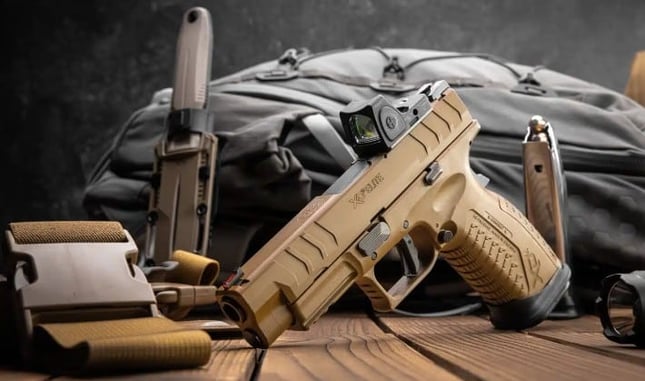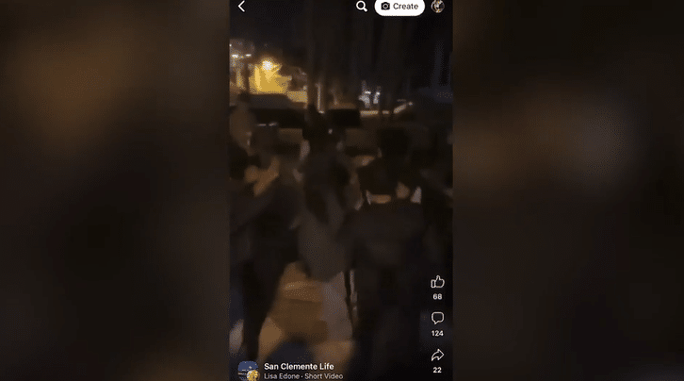By Johannes Paulsen via The Truth About Guns
An embarrassing mistake by the U.S. District Court for the District of Columbia means that a preliminary injunction that stopped D.C. from requiring applicants for concealed firearms licenses to show “good reasons” for their application is no longer in effect. A few months ago, we reported on a case called Wrenn v. District of Columbia which challenged the District’s ordinance concerning the licensing of individuals to carry a concealed firearm for purposes of self-defense. Back in May, the Federal Court for the District of Columbia issued a preliminary injunction halting the enforcement of the part of that ordinance that required applicants to show “good reason/proper reason” because the Court found that the plaintiffs were likely to prevail in their argument that this requirement was unconstitutional . . .
The District appealed the injunction, and just this week, the D.C. Circuit Court of Appeals vacated the order, but not for any substantive reason. Instead, the Appeals Court granted the District’s motion on a technicality: the Judge who issued the order did not have jurisdiction to make the decision.
A little bit of an explanation is in order here. When the case went to the District Court, U.S. District Judge Frederick J. Scullin handled the case and issued the order. There’s only one problem: Judge Scullin is a Senior Judge of the Northern District of New York.
Wait a minute – if Judge Scullin is from New York…what’s he doing in D.C.?
Well, the D.C. Courts had a bit of a backlog of cases, and Judge Scullin had been assigned to oversee several cases to help drain the swamp, so to speak. The process of assigning cases from one district to a judge who has jurisdiction over another district, however, is not just a matter of sending him an e-mail asking for help and forwarding the link to the files on the shared network drive. As the Court of Appeals held, a certificate of necessity needs to be presented to the Chief Justice of the Supreme Court, after which he can designate and assign specific duties to the judge outside his normal jurisdiction.
In this case, Judge Scullin “had served under a properly issued designation,” but that designation had been limited to “specific and enumerated cases”. (28 U.S.C. § 294(e) also specifies that “No retired [which includes Senior Judges like Judge Scullin] . . . judge shall perform judicial duties except when designated and assigned.”) Needless to say, Wrenn v. District of Columbia was not one of those enumerated cases. As a result, the injunction has now been thrown out, and D.C. can go back to enforcing its ordinance requiring applicants for firearms carry licenses to show “good reason” why they need the license.
For now, anyway. This isn’t the end of the case; the matter will now be heard by a different judge who (presumably) will have the appropriate jurisdiction to rule on the matter.
What isn’t clear at this point is the status of persons who received concealed firearms permits without having to show “good reason” after the preliminary injunction had been imposed. Based on reporting from the Washington Times, it appears that the District only allowed three such permits to be issued – for plaintiffs Brian Wrenn, Joshua Akery and Tyler Whidby. “[G]un owners at large were not able to bypass the “good reason” requirement while the case progressed through the system. (The District’s foot-dragging here was also the subject of a motion for contempt from the Second Amendment Foundation, which now, alas, appears to be mooted.)
Alan Gura, the firearms rights rockstar attorney who represented the plaintiffs advised that they were not going to challenge the ruling, and will instead go back to square one with a new judge. “The interest we have is moving this forward as quickly as we can practically do so,” Mr. Gura told theWashington Times.
It’s a disappointing decision, but not the worst outcome possible here. The facts on the ground and the constitutional law will be no different for the new judge, after all. What it does do is burn up time and resources for the plaintiffs, Mr. Gura, and the Second Amendment Foundation which is backing the lawsuit. Sometimes justice doesn’t go to the people who are in the right, but rather to the folks who have the money to pay the legal fees. The District can rely on involuntary contributions from taxpayers to pay its legal fees; the plaintiffs cannot do so. If you’re inclined to support this sort find yourself needing to make a few extra tax-deductible donations before the end of the year, well, you can look at the SAF’s website here, and decide whether or not this is the sort of case and organization you want to support.
DISCLAIMER: The above is an opinion piece; it is not legal advice, nor does it create an attorney-client relationship in any sense. If you need legal advice in any matter, you are strongly urged to hire and consult your own counsel. This post is entirely my own, and does not represent the positions, opinions, or strategies of my firm or clients.










![[READER QUESTION] Can You Inherit Guns?](https://imagedelivery.net/sbm_lYeJbALkepJgtmRD5w/concealednation.org/2015/05/gavel.jpg/w=728,h=381)



